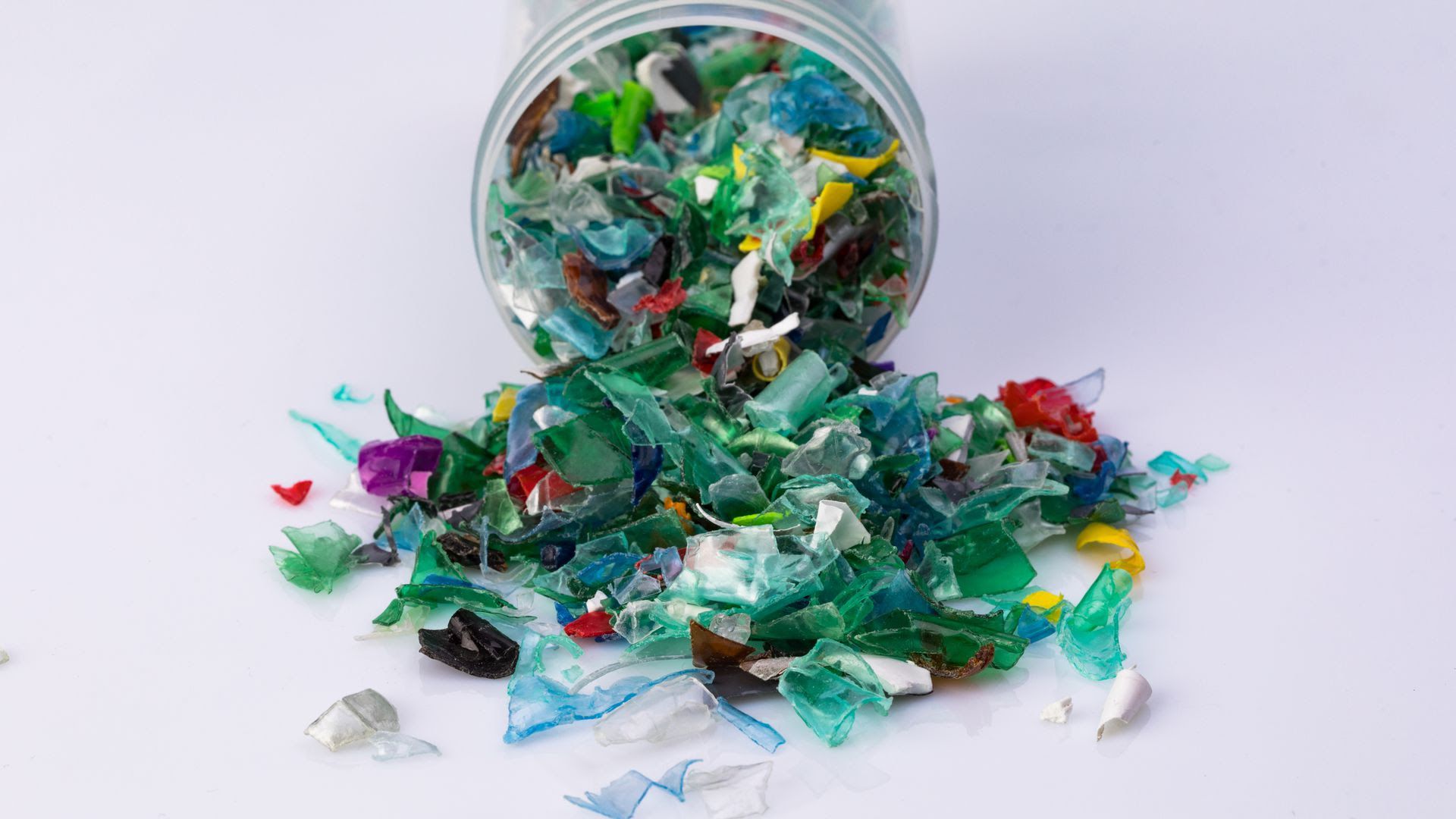A better way to recycle plastic
Add Axios as your preferred source to
see more of our stories on Google.

Carbios has developed specialized enzymes that can recycle plastics. Photo: Carbios
A French startup has pioneered a new way of using enzymes to recycle plastics more efficiently than current methods.
Why it matters: Existing recycling procedures for many plastics downgrade the material, only staving off the day in which it will end up in a landfill. A method that could fully recycle plastics would be a game-changer.
Of the roughly 359 million tons of plastics produced each year worldwide, more than half ends up in a landfill or the natural environment.
- Part of the reason such a small percentage of plastics is recycled is that the material tends to degrade during the current recycling process. What remains can often only be used for low-value products.
- This is especially true for the most abundant form of plastics, PET, which is used in bottles and packaging.
The startup Carbios, founded in 2011, has discovered enzymes that can break down a plastic bottle in a matter of hours, producing leftover material good enough to reconstitute into new bottles.
How it works: The company analyzed tens of thousands of different enzymes found in environments polluted by PET. One enzyme, found in a heap of leaf compost, proved capable of reducing a PET bottle into chemical building blocks that could be used to make new, high-quality plastic bottles.
- Carbios is working on a demonstration plant south of Lyon, France, and if the work goes well, it expects to license the first commercial plant using its technology by 2024 or 2025.
"There is such a high demand for recycled plastic that we won't be able to meet the goals set by regulators and big brands without the introduction of new technology like this."— Martin Stephan, Carbios deputy CEO
Yes, but: Like all new technologies, the key will be ensuring the process makes economic sense for recyclers at the commercial level.
Go deeper: Big Oil doubles down on recycling
